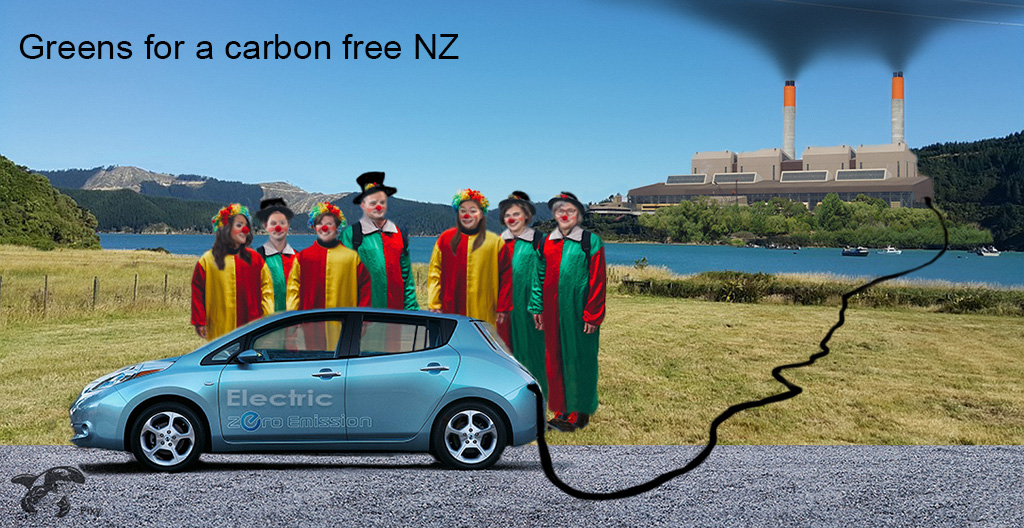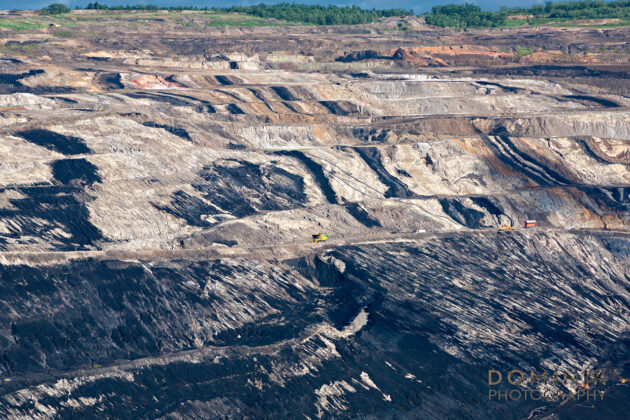As the ideologues in government announce a reverse Robin Hood tax to encourage EV sales, one has to wonder where they were when the ability to think critically was handed out.
Stealing from the poor to subsidise the wealthy into smugmobiles is wrong on so many levels and yet the Labour/Green government think it is appropriate.
We already know that our clean-green electricity is supported by the coal-fired power station at Huntly and that more coal has been imported this year than ever before.
With increasing electricity demand from more smugmobiles this must get worse as the Greens will not allow more hydro dams; there are no new windfarms being built (apart from the 4.5 per year in Minister Woods’s head); and the solar farms are not there either.
So more electricity demand must mean more coal being burnt. And where does the coal come from? Certainly not our own high-quality coal which would provide local employment. Oh no! The coal we use is shipped here from Indonesia.

Yup, looks clean and green!
When Indonesia’s parliament passed a new slate of deregulation that, among other things, drastically strips back environmental protections against coal mining, critics and protesters denounced it as catering to business interests.
Now, a new report lays bare what many already suspected: several of the politicians who pushed for the new legislation have links to the mining companies that stand to benefit from the changes. The report, compiled by a coalition of Indonesian NGOs, uses corporate registries and other publicly available sources to map out the connections between the mining and “dirty energy” industry and the drafting of the so-called omnibus law on job creation.
Extractives
Oh look, just like the Labour/Green government here, the Indonesian politicians are stealing from the poor to make the rich wealthier. I love the smell of hypocrisy in the morning!
The omnibus law also obliges the government to ensure that companies in the downstream coal industry can secure the land needed for their projects by designating them as being of national strategic importance. The NGO coalition identified at least eight such projects currently in the works.
This change affects, among others, farmland designated for sustainable agriculture, which was previously protected under a 2009 law. Unlike the industrial plantations managed by large agribusiness companies, sustainable agricultural land is managed mostly by smallholder farmers in Indigenous and rural communities. By allowing their land to be rezoned for the needs of the energy industry, the omnibus law caters to the interests of the wealthy few, says Rina Mardiana, a researcher at the Bogor Institute of Agriculture (IPB).
“This policy is not in favor of agriculture and there’s no systematic effort to achieve national food sovereignty,” she said. The omnibus law also allows companies to take over the government’s role in acquiring land for national strategic projects in the case of the government being unable to do so. “It means all citizens can be forced to give up their lands to companies appointed by the government for national strategic projects,” Iqbal said. “It means this law can force people off their lands. Even if a region needs land for farming, a national strategic project can override that.”
Extractives
Golly, the Indonesians don’t believe in private property rights any more than our lot do.
And what about the forests that sequester all the evil, evil CO2?
Chop them down and strip mine the land!
Another contentious article in the law effectively grants impunity to companies mining illegally inside forest areas. Under a 2013 law on forest conservation, this type of activity is punishable by up to 10 years in prison time and fines of up to 5 billion rupiah ($340,000) for individuals or 50 billion rupiah ($3.4 million) for companies.
But the omnibus law renders this punishment obsolete by allowing such mining to continue as long as the companies apply for the necessary permits within three years of the law’s passage. And even if they fail to do that, they face only the threat of administrative sanctions; criminal and financial sanctions no longer apply.
This effectively whitewashes existing violations by companies that mining inside forest areas and leaving behind degraded landscapes, Iqbal said. “With this provision, they will be forgiven,” he said.
Extractives
But hey! We are saving the planet!
Let’s leave the last words and images to a photographer:
What is special about photographing Indonesia’s coal mines is that they are all open-pit mines. Open-pit means that the mining takes places at the surface and not underground.
And this creates some impressive ‘minescapes’ = mine & landscape.
Those coal mines in Indonesia are large indeed. In fact, the mines I photographed are among the top-10 world’s largest open-pit coal mines.
One mine, at which I did most of my assignments was over 20 km in length and several hundred meters in depth.
Dominik
Environ-mentalism at its very best.
Please share this article.







